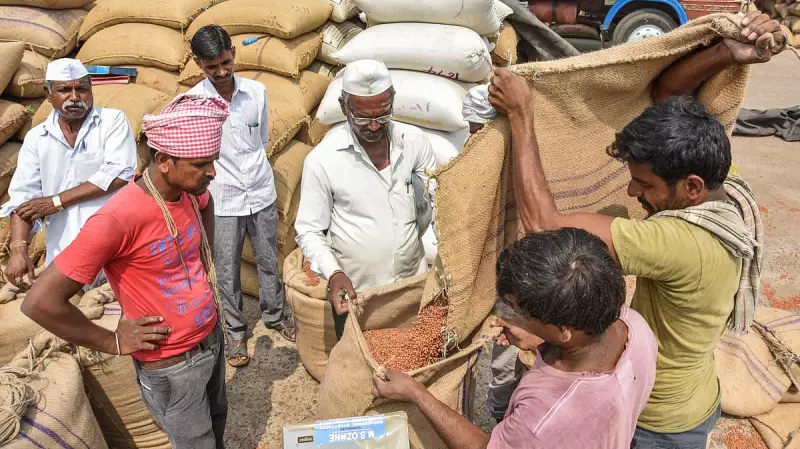
Farmers across North Karnataka's agricultural heartlands are facing an unprecedented economic crisis as market prices for essential pulses and soybeans have crashed dramatically, falling well below the government's Minimum Support Price (MSP) guarantees.
Price Plunge Creates Widespread Distress
The current agricultural season has brought devastating news for thousands of farmers who cultivated tur (pigeon pea), moong (green gram), and soybean across multiple districts. Market prices have taken a severe nosedive, with tur selling at a staggering ₹1,000-1,200 less than the MSP of ₹7,000 per quintal.
Similarly, moong prices have collapsed to ₹5,000-5,500 per quintal against the promised MSP of ₹8,683, while soybean trades at just ₹3,500-3,900 compared to the MSP of ₹4,600. This massive gap between promised and actual prices has pushed many farming families to the brink of financial collapse.
Farmers Demand Immediate Government Intervention
Agricultural communities in Kalaburagi, Vijayapura, Bagalkot, and other northern districts are raising urgent appeals to both state and central governments. Their primary demand: immediate implementation of MSP procurement through relevant government agencies to prevent total economic devastation.
"We invested everything in these crops based on government MSP assurances," explains a distressed farmer from Kalaburagi. "Now with prices so low, we can't even recover our production costs, let alone support our families."
Market Realities Versus Government Promises
The situation highlights the critical gap between policy announcements and ground-level implementation. While MSP mechanisms exist on paper, the absence of robust procurement systems during price crashes leaves farmers vulnerable to market fluctuations.
Local agricultural experts note that this price collapse comes despite reasonable production levels, suggesting market manipulation and inadequate government intervention as contributing factors to the crisis.
Broader Implications for Agricultural Sustainability
This pricing crisis threatens to undermine long-term agricultural planning in the region. Farmers who traditionally grew pulses and oilseeds are now reconsidering their cropping patterns, potentially leading to reduced production of these essential commodities in future seasons.
The current situation raises serious questions about the effectiveness of India's agricultural safety nets and the real-world impact of MSP policies on farmer welfare.
As the crisis deepens, farming communities await concrete government action that could determine their survival through the coming agricultural cycle and beyond.





